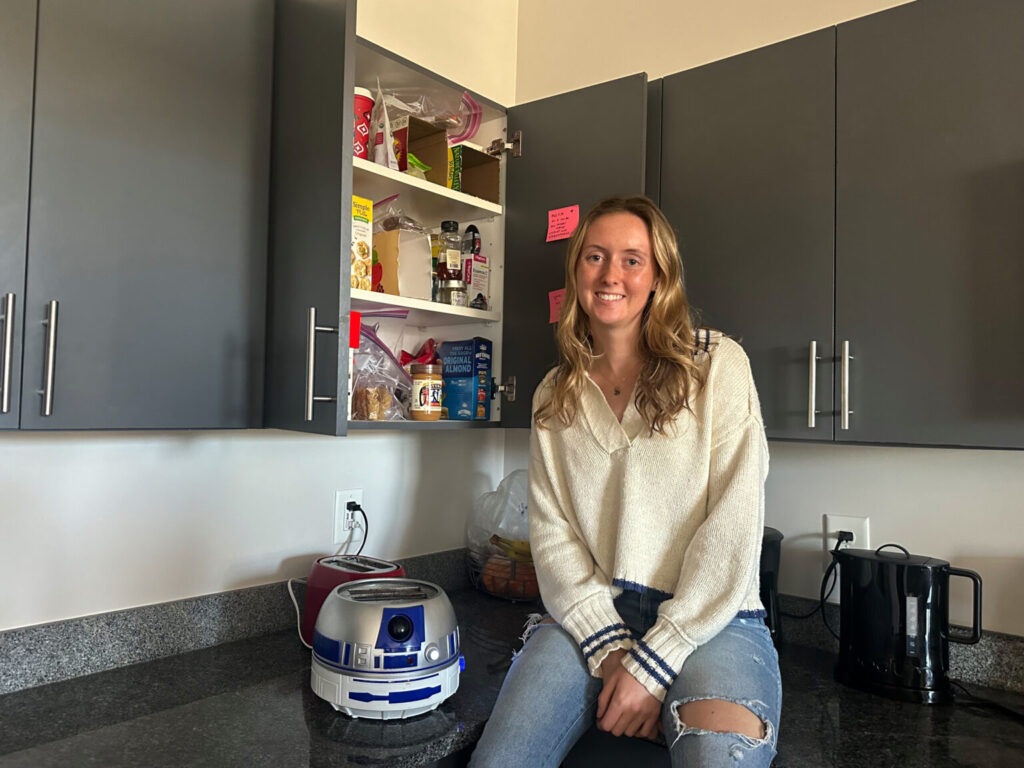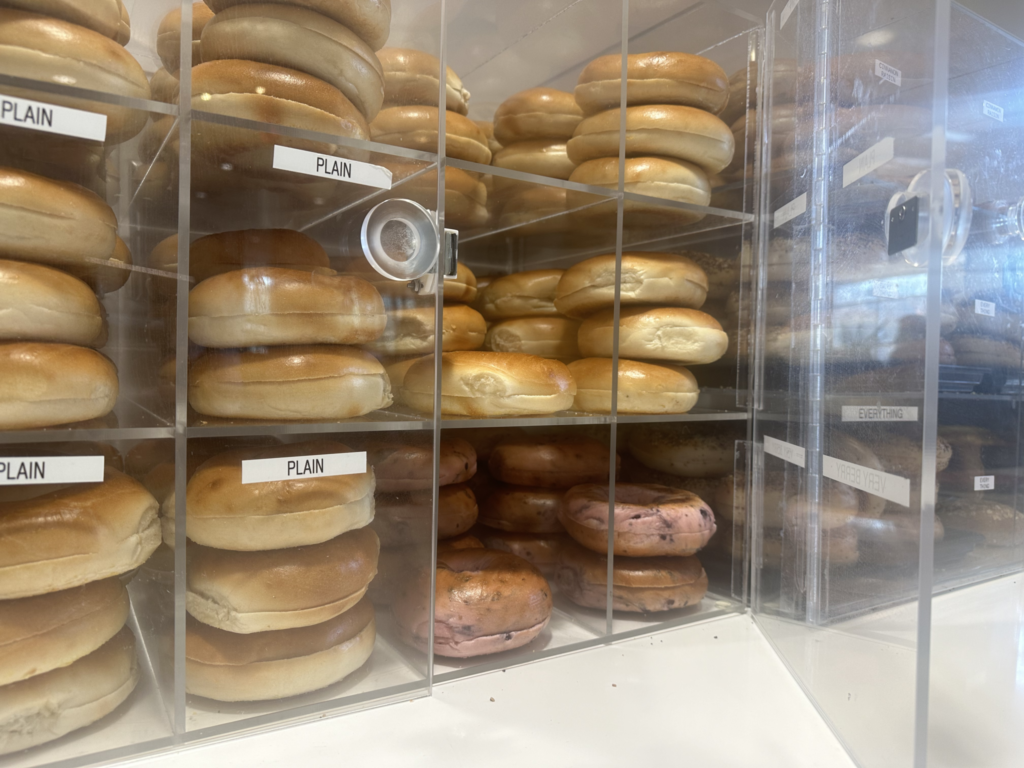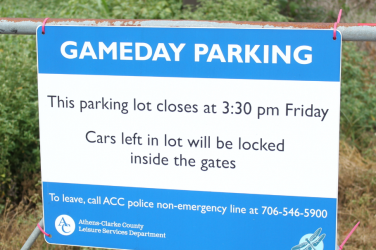
When Anna Jacobson, a junior at the University of Georgia, was in the fifth grade, she routinely became sick every morning at the same time during class, so her teacher would send her to the nurse’s office. Jacobson said she had always struggled with stomach issues, but she did not know what was causing them.
“My teacher that year, I knew her really well. [She] knew I wasn’t just trying to skip out on class. She knew something was actually wrong,” Jacobson said. “But the nurse would just always send me back thinking I was just trying to get out of class.”
Jacobson was, in fact, not trying to get out of class. She was soon diagnosed with celiac disease — an autoimmune disorder that impacts the small intestine upon the consumption of gluten, a protein found in wheat, barley and rye.
This diagnosis changed her life.
So, What is Celiac Disease?

Celiac disease affects approximately 2 million Americans and 1% of the worldwide population, with most cases being undiagnosed, according to the National Institute of Health.
Those with Celiac disease experience a wide range of symptoms when eating gluten, including nausea, vomiting, bloating and more. Each case is different, and some are more sensitive than others.
In Jacobson’s case, she is extremely sensitive to gluten and is even affected by cross-contamination, which is when crumbs or small particles in foods with gluten in them get mixed into gluten-free foods.
A Social Affair
Despite her young age, when Jacobson received her diagnosis, she realized that not only would her diet change — but also her lifestyle.
Jacobson played travel softball in elementary school, and upon switching to a gluten-free diet, she started to feel a setback in comparison to her teammates after losing 12 pounds of muscle.
“My skill in softball seriously took a really big punch from that,” Jacobson said. “It was a very difficult time because I was already smaller than everyone else on the team, and then this happened … It was really hard for me to kind of comprehend why things were harder for me to do all of a sudden.”
The challenges continued, and because “gluten-free” labels were less mainstream at the time, Jacobson’s team members and coach did not understand her diagnosis.
“I actually ended up starting to hate the sport that season, and then I stopped playing the following year because it set me back so much,” Jacobson said.
As Jacobson grew older, she started to realize she missed out on something that most people take advantage of — the social aspect of food, whether that’s eating at new restaurants, cooking meals together or having food catered at a club event.
“I was never really a school lunch eater, so that didn’t bother me too much, but it did get very interesting with making friends,” Jacobson said. “Because I hadn’t realized before — I know it even more now … that I’m in college, that eating with people is a way that you were able to keep in touch. [As a kid], I didn’t realize how much food kind of was a social thing.”
Caroline Williford, a junior at the University of Georgia who is friends and roommates with Jacobson, said knowing someone who has celiac disease has made her more aware of the autoimmune disorder.
“I’ve seen it a lot in restaurants when we go out like that’s probably the biggest thing, and also like, if anything is catered for like certain events. We’ve gone to like business events together at Terry, and just them not having a gluten-free option — it’s really opened my mind,” Williford said.
But it’s helped her realize the social dynamics and limitations one must have, she said, “I never really considered how much [people diagnosed with celiac disease] can’t eat and how, you know, when there’s these food options offered, oftentimes there’s not a gluten-free option.”
The Day-to-Day Mechanics
Despite becoming confident in and accustomed to her diagnosis throughout her teen years, picking colleges was a struggle for Jacobson, who is originally from Virginia.
When visiting UGA for the first time with her mother, the two visited a restaurant downtown. Upon asking the server what items on the menu were gluten-free, the server was confused, making Jacobson discouraged about her potential new home.
“In the process of choosing colleges, I was between two — it was UGA and somewhere else — and in the back of my mind, I was like ‘I really don’t know if I’m going to be able to eat things at UGA,’” Jacobson said.
Jacobson is involved in multiple organizations on UGA’s campus and lives with three of her friends in an apartment complex in downtown Athens.
While their kitchen might look ordinary to an average looker’s eyes, there are some key differences – two toasters (one for gluten-free products, one for everything else), a designated gluten-free snack cabinet and a tub of butter with the words “GF” written in bold black sharpie across the lid – that are the difference between a normal day and a severe allergic reaction.
Williford also said she is mindful about wiping down the kitchen counters after cooking meals with bread products and that most of the roommates use different brands of food products.
“We do have to have everything separate. It hasn’t been too big of a problem because we use different brands of products, at least as far as I know. We haven’t run into a product of like, using the same type of brand of something, and Anna is really good at labeling,” Williford said.
Before moving into her downtown apartment, Jacobson was on the UGA meal plan for two years and also lived in her sorority house, where there was a chef who made them meals Monday through Friday.
While she enjoyed the gluten-free pantry in Bolton Dining Commons, Jacobson sometimes felt extra attention on her in her sorority house or at club meetings where separate food needed to be prepared for her.
“Whenever I go to any sort of events, it’s always kind of like feeling slightly like a burden on people,” Jacobson said.
While Jacobson has a strong community of friends who understand her diagnosis, when entering new environments, Jacobson finds it easier to pack her own meals instead of taking a risk.
“The same thing that consistently occurs is the explaining to people why I can’t have something,” Jacobson said. “…Oftentimes when people will offer me food that has gluten in it, I really just say ‘no, thank you’ because it’s just so much easier than having to explain the whole thing to them.”
Ellie Shafer is a fourth-year journalism major at the University of Georgia.








Show Comments (0)